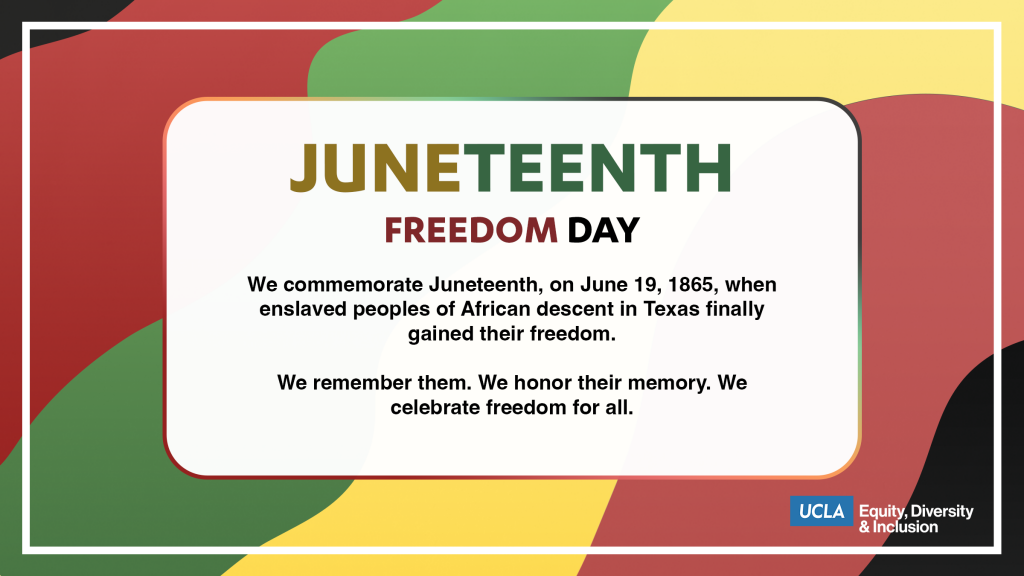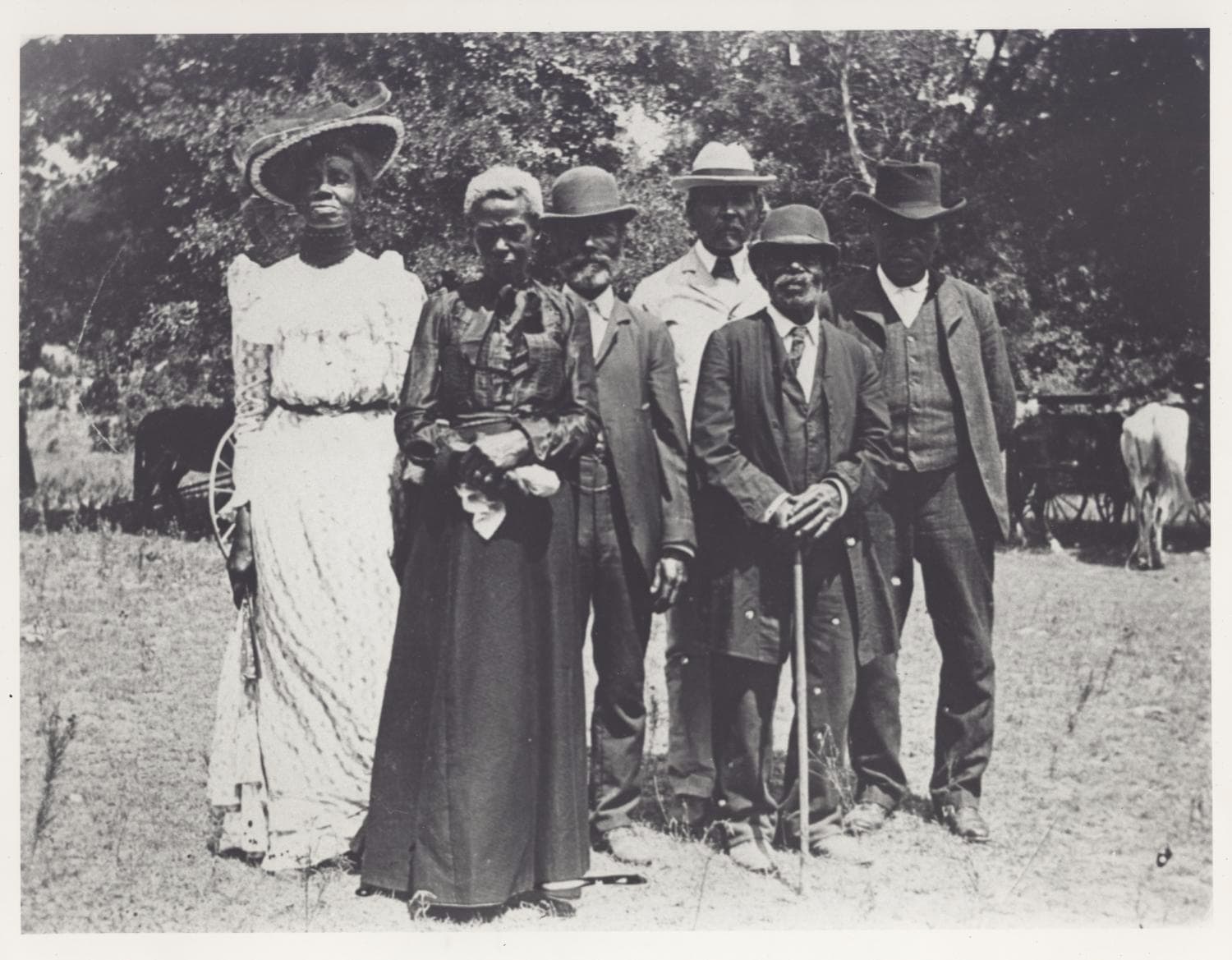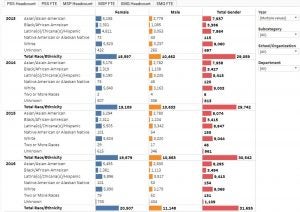
On June 19, 1865, enslaved people in Texas finally found out that they had been freed from bondage. Even though President Lincoln had signed the Emancipation Proclamation over two years earlier, Texas slaveholders had hidden that fact from the people they kept in chains. Since then, generations of Black Americans have celebrated the anniversary of that liberation as “Juneteenth”.
But even 155 years later — and as recent national events have powerfully demonstrated — we have learned that celebrating and recognizing that day is not enough. What can we do to truly acknowledge Juneteenth? How can we learn more about the day itself, especially its historical and current repercussions? And how can we take action and get involved — both on campus and beyond — in the hope of genuine reform?
The Office of Equity, Diversity and Inclusion (EDI) wants to help. There’s no simple solution or panacea, but perhaps we can start with some useful information. Following up on the materials we have put together in our Preventing Discrimination: Anti-Black Discrimination Toolkit, this page will spotlight activism efforts, guidance, resources, and vital historical information surrounding Juneteenth.
We value your ideas and input! Please e-mail suggestions and recommendations to rklibaner@equity.ucla.edu.
History of Juneteenth
Additional Resources
-
-
-
-
-
-
"13th" (2016) - YouTube (free streaming), Netflix
-
-
"The Hate U Give" (2018) - Hulu, YouTube, Vudu, Apple TV, Amazon Prime Video
-
"Hidden Figures" (2016) - Hulu, Disney+, YouTube, Vudu, Apple TV, Amazon Prime Video
-
-
-
"Selma" (2015) - Paramount+, Hulu, YouTube, Vudu, Apple TV, Amazon Prime Video
-
"Soul Food" (1997) - Hulu, YouTube, Vudu, Apple TV, Amazon Prime Video, HBO Max
-








